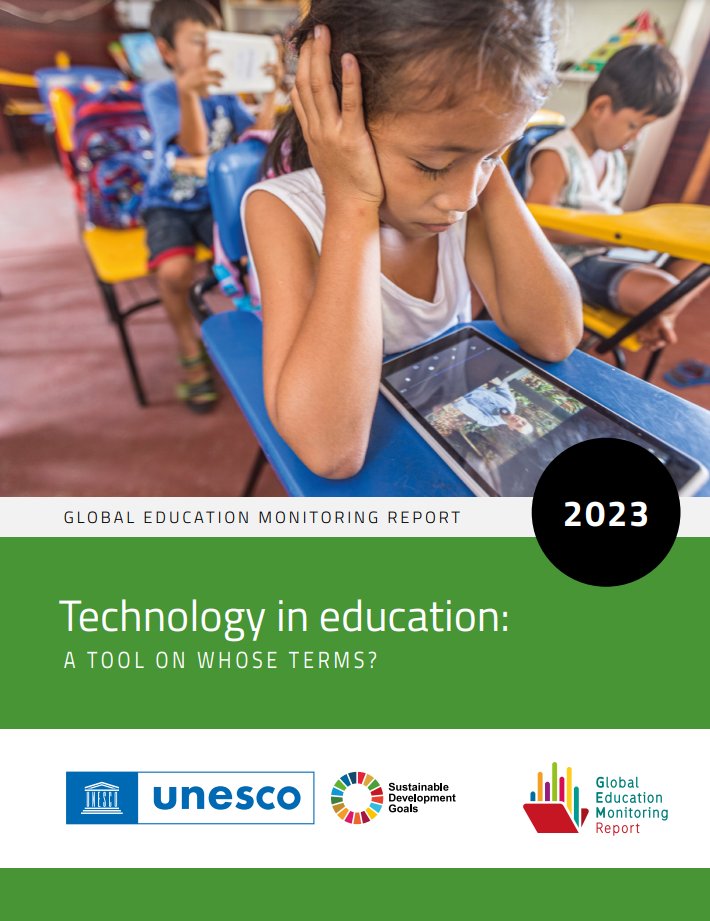
The UNESCO-UNEVOC International Centre: Who We Are | What We Do | Working With Us | Get in Touch
The UNEVOC Network: Learn About the Network | UNEVOC Network Directory
For Members: UNEVOC Centre Dashboard
Thematic Areas: Inclusion and Youth | Digital Transformation | Private Sector Engagement | SDGs and Greening TVET
Our Key Programmes & Projects: BILT: Bridging Innovation and Learning in TVET | Building TVET resilience | TVET Leadership Programme | WYSD: World Youth Skills Day
Past Activities: COVID-19 response | i-hubs project | TVET Global Forums | Virtual Conferences | YEM Knowledge Portal
Our Services & Resources: Publications | TVET Forum | TVET Country Profiles | TVETipedia Glossary | Innovative and Promising Practices | Toolkits for TVET Providers | Entrepreneurial Learning Guide
Events: Major TVET Events | UNEVOC Network News

| Author/s: | Global Education Monitoring Report Team |
| Publisher/s: | UNESCO |
| Published: | 2023 |
| Licence: | CC BY-SA |
The adoption of digital technology has resulted in many changes in education and learning, yet it is debatable whether technology has transformed education as many claim. The application of digital technology varies by community and socioeconomic level, by teacher willingness and preparedness, by education level and by country income. Except in the most technologically advanced countries, computers and devices are not used in classrooms on a large scale. Moreover, evidence is mixed on its impact. The short- and long-term costs of using digital technology appear to be significantly underestimated. The most disadvantaged are typically denied the opportunity to benefit.
In asking ‘A tool on whose terms?’, the Report shows that regulations for technology set outside of the education sector will not necessarily address education’s needs. It is released along with a #TechOnOurTerms campaign, calling for decisions about technology in education to prioritize learner needs after assessment of whether its application would be appropriate, equitable, evidence-based and sustainable.